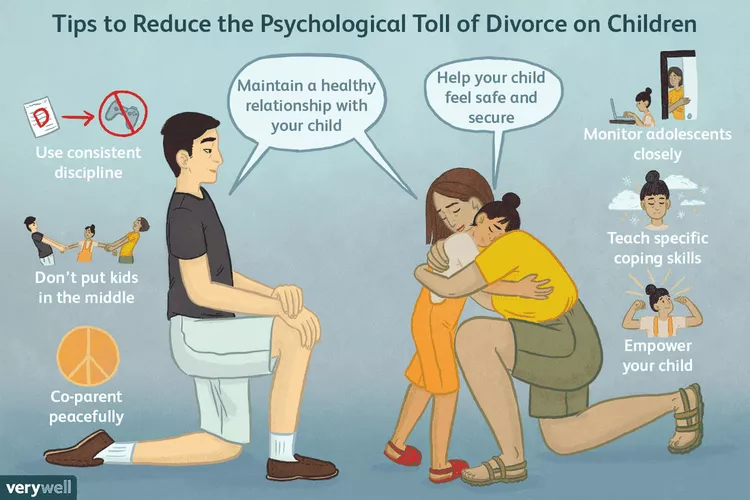The Effects of Divorce on Families
A chart that shows the effects divorce can have on children and ways to help them.
March 9, 2023
Divorce is a sensitive topic for a lot of people. Many children witness divorce. Many people think that if a child is young when their parents divorce, they will not be affected as much because they will grow up with the divorce. While it is true that a child who grows up with divorced parents is likely to handle the topic better than one who is older and is actively witnessing their parents’ divorce, everyone is affected by divorce, no matter how old they are when it occurs.
Parents, who plan to divorce ask, “should we stay together for the kids?” Some try to stay together for their kids, whereas others decide it’d be best if they split immediately. Dona Matthews, Ph. D states that “staying together helps in the short term but could cause more problems as a long-term solution”. Many parents who stay together for their kids often argue and fight, putting more stress on their kids. There have been very few studies that show that staying together for the kids improves any outcome. The situation where the parents split immediately, while sometimes still bad, often is a better solution.
Younger children, like toddlers, tend not to understand what is happening during a divorce. They don’t know why they go between two homes. Amy Morin, LCSW, and Carly Snyder, MD, wrote about divorce’s effects on children of different ages. Grade school children tend to blame themselves for a divorce, thinking they did something wrong and teenagers are most often angry about divorce and the changes it brings. They often blame one or both of their parents for the upheaval of their family. In any case, the first year of a divorce is the worst for kids. Children experience distress, anger, anxiety, and disbelief of their parent’s divorce. However, as time goes on after a divorce, children often bounce back. They get used to and become comfortable with the changes.
Divorced parents have many people and tips to help them and their families during this time. Some strategies that help reduce physiological effects on children include peacefully co-parenting, avoiding purring kids in the middle, maintaining healthy relationships, using consistent discipline, monitoring adolescents closely, empowering children, teaching coping skills, seeking parent education, helping kids to feel safe, and professional help, such as therapy.

